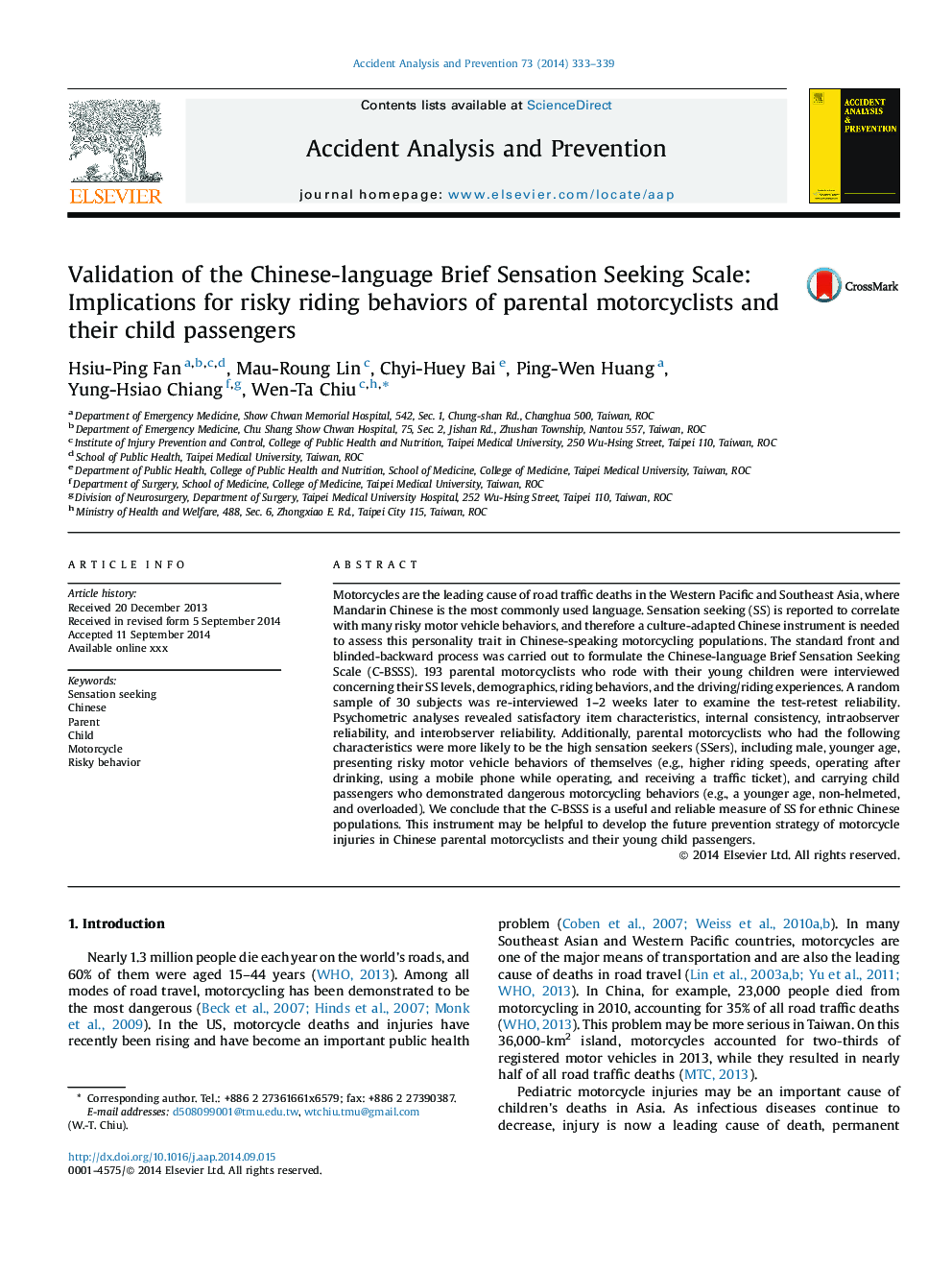| Article ID | Journal | Published Year | Pages | File Type |
|---|---|---|---|---|
| 6965905 | Accident Analysis & Prevention | 2014 | 7 Pages |
Abstract
Motorcycles are the leading cause of road traffic deaths in the Western Pacific and Southeast Asia, where Mandarin Chinese is the most commonly used language. Sensation seeking (SS) is reported to correlate with many risky motor vehicle behaviors, and therefore a culture-adapted Chinese instrument is needed to assess this personality trait in Chinese-speaking motorcycling populations. The standard front and blinded-backward process was carried out to formulate the Chinese-language Brief Sensation Seeking Scale (C-BSSS). 193 parental motorcyclists who rode with their young children were interviewed concerning their SS levels, demographics, riding behaviors, and the driving/riding experiences. A random sample of 30 subjects was re-interviewed 1-2 weeks later to examine the test-retest reliability. Psychometric analyses revealed satisfactory item characteristics, internal consistency, intraobserver reliability, and interobserver reliability. Additionally, parental motorcyclists who had the following characteristics were more likely to be the high sensation seekers (SSers), including male, younger age, presenting risky motor vehicle behaviors of themselves (e.g., higher riding speeds, operating after drinking, using a mobile phone while operating, and receiving a traffic ticket), and carrying child passengers who demonstrated dangerous motorcycling behaviors (e.g., a younger age, non-helmeted, and overloaded). We conclude that the C-BSSS is a useful and reliable measure of SS for ethnic Chinese populations. This instrument may be helpful to develop the future prevention strategy of motorcycle injuries in Chinese parental motorcyclists and their young child passengers.
Related Topics
Physical Sciences and Engineering
Chemical Engineering
Chemical Health and Safety
Authors
Hsiu-Ping Fan, Mau-Roung Lin, Chyi-Huey Bai, Ping-Wen Huang, Yung-Hsiao Chiang, Wen-Ta Chiu,
